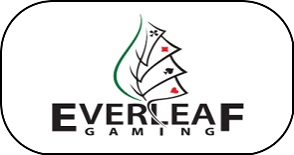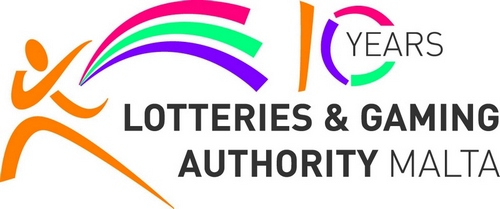In 1995, Everleaf Poker started with a single skin titled poker4ever. The site was licensed by the Lottery and Gaming Commission of Malta (LGA) and had moderate success. After the passing of the UIGEA the following year, Everleaf decided to take advantage of poker networks like Party Poker and Mansion leaving the U.S. market and positioned itself as a viable U.S. facing poker option that could compete with Cereus, PokerStars and Full Tilt. The company did have some non-U.S. players but they were limited. As a result of the positioning and low licensing fee, Everleaf had almost 200 companies sign on as skins. Unfortunately most of the skins were very small and attracted few players. In fact only 2 skins, Mintedpoker.com and Victorypoker.com had enough players to make them worth mentioning. Switch-Poker.eu also had a fair number of customers but that was likely as a result of mistaken signups by customers thinking it was Switchpoker.com, a Costa Rican site which gained notoriety for accepting bitcoins as payment. At last check that companies client based dropped dramatically. According to the rules of the licensing agreement, Everleaf was to provide the software, support and payment processing for all the skins while the sites themselves did their own marketing.
 Everleaf was never able to compete with the big 3 U.S. facing companies and even after Black Friday when the big 3 cut off U.S. customers Everleaf failed to pick up many of their customers. It seemed after Black Friday most U.S. customers of PokerStars, Full Tilt and Cereus chose to sit on the sidelines waiting for U.S. regulated poker.
Everleaf was never able to compete with the big 3 U.S. facing companies and even after Black Friday when the big 3 cut off U.S. customers Everleaf failed to pick up many of their customers. It seemed after Black Friday most U.S. customers of PokerStars, Full Tilt and Cereus chose to sit on the sidelines waiting for U.S. regulated poker.
Everleaf's operation took a tremendous hit in 2011 when Quick Tender, also known as Use My Wallet, was forced to close shop after the U.S. Department of Homeland Security (USDHS) took action against them. The USDHS determined that Quick Tender was using a U.S. bank account to process poker transactions resulting in the USDHS issuing cease and desist order against them and the companies using Quick Tender as a processor. The USDHS also seized almost $27,000 in funds from Quick Tender, most of which was believed to be in funds in transit to Everleaf customers. At that point Quick Tender closed shop and most networks that were using them as a payment option closed their operations to U.S. customers. Everleaf, however continued to accept U.S. customers turning to PicClub and Western Union for deposits although most payouts were made by check. Payouts to U.S. customers became very slow and in fact many customers said they were waiting for months for a payout. The LGA told Everleaf that in light of the current climate they should cut off U.S. customers and in February 2012 Everleaf indeed cut off their operation to U.S. customers but offered few methods for Americans to receive the funds owing to them. Some U.S. players did make successful withdrawals by having friends in other countries accept withdrawals for them by Moneybookers or NETeller (similar to what happened at NETeller prior to their withdrawal from the U.S. market) but any American that wanted to withdraw in a legal and ethical manner were out of luck. As a result of the payment issues, MintedPoker and VictoryPoker both announced they were "embarrassed" and leaving the Everleaf Network and urged their customers to withdraw their funds from Everleaf. They also provided their customers email addresses and phone numbers to the LGA to demand that the Malta government take some action to get the funds back to the players. No doubt the owners of those 2 sites hoped that disassociating themselves with Everleaf would convince current players to stay on a new network but the damage was already done. Since February 2012, OSGA has indicated that they have been getting steadily increasing emails from disgruntled Everleaf (and particularly Mintedpoker) customers who have been waiting over a year for payment and poker forums have been filled with disgruntled poker players who have been left in a lurch.
It was evident that Everleaf didn't segregate post up funds from operating capital which most players believe is a fundamental responsibility coming with regulation in a primary jurisdiction, although it seems few jurisdictions actually have that requirement. The LGA claims to be one of the most secure licensing locations for gambling so I checked out their regulatory requirements and nowhere was segregation of funds mentioned. In fact there wasn't even a mention of determining financial viability for the companies they license. Instead the regulatory documents focus on self exclusion and responsibilities of the players. That said, Part 3, Section 13 of the LGA remote gambling regulations does set out times when licenses can be suspended and a few sections make it clear that Everleaf's license should not have been renewed as a result of their failures to pay players live up to the agreement. I have listed the relevant sections of those regulations below.
 13. (1) The Authority may order the suspension or cancellation of a licence if:
13. (1) The Authority may order the suspension or cancellation of a licence if:
(b) the licensee has failed without reasonable cause being shown to comply with any material term or condition of the remote gaming licence;
(c) the licensee has failed to discharge financial commitments for the licence holder's operations or the Authority has reason to believe that such failure is imminent;
(d) the licence holder is insolvent or is being wound up;
(e) the licence holder applies for an order, or is compelled by any means or for any reason, to discontinue or to wind up its operations;
(h) the licence holder has failed to meet commitments to players;;
(l) the Authority is reasonably satisfied that the licensee presents a danger to the reputation of gaming in Malta.
Given that players were not being paid and that the company was clearly suffering financial strains I contacted the LGA for a comment on why Everleaf has been allowed to continue operations but for almost 2 weeks received no reply. Management at OSGA, however, has informed me that they did get in touch with someone at the LGA who in turn put them onto the Malta Gaming Authority. That entity then told the OSGA manager to contact the LGA. Not surprisingly this run around has created a great concern to OSGA about all companies operating under a Maltese license particularly since numerous other companies licensed in Malta have failed to pay players, the most notable BetonBet, Eurolinx and Melita Gaming. Jim Quinn, the President and CEO of OSGA stated the following:
"When jurisdictions open up to I-gaming and then secure some of the largest companies in the world as licensees, everyone thinks that operations located there are safe. Clearly Malta does not care if players get stiffed when their licensees close up shop."
I also tried to get in touch with a representative of the UK Gambling Commission for countries for a comment. The UK Gambling Commission is the entity which issues white listings in the UK. According to the rules only jurisdictions that meet the most strict regulatory requirements will be given a white listing that allows them to advertise in the UK. Malta as a member of the EEC has been given a white listing as have the battered jurisdictions of Alderney (which licensed Full Tilt) and Antigua which has seen many companies default on payments to customers, WSEX and Aladin's Gold being the most famous. No one from the UK Gambling Commission was willing to speak to me on record although comments I received during a phone call indicated that as long as the regulations are in place, then the Commission is happy to issue them a white listing. In better words, as long as the regulations are there, the jurisdictions can get a listing but there doesn't seem to be any requirement that those jurisdictions actually enforce their regulations.
I also spoke to a former bet manager for a sportsbook operating with a Malta license who said that he was very frustrated dealing with the LGA. "Every time I spoke to someone at LGA I got the run around. When we applied for a license they couldn't have been nicer, but once we were licensed and paid the fee, they were out of site and out of mind."
The sportsbook manager also laughed at my question to him about segregating funds, stating that no gambling company except the ultra rich like PokerStars or William Hill can actually segregate post up money from operating capital because there are always times where they need to dip into that money for survival.
So it seems clear that once again American players are up the proverbial creek without a paddle. Full Tilt players are still waiting for their funds, no thanks to the Alderney Gaming Commission, WSEX customers have no recourse from the Antiguan government and now the LGA seems to have no power or will to get Everleaf funds back to American customers. For this reason it's imperative that the U.S. government legalize, regulate and tax online gambling as soon as possible. The desire to gamble by Americans exists and unfortunately they can't rely on any foreign governments to create a reasonable regulatory environment. Even in a U.S. regulated environment there isn't a guarantee that American players would never get stiffed but that possibility is far less likely with the likes of Caesars, MGM or a legal and regulated U.S.-based PokerStars.
Contact Hartley via email at hartley[at]osga[dot]com.
Read insights from Hartley Henderson every week here at OSGA and check out Hartley's RUMOR MILL!
To view an article about Suspension of Everleaf Gaming Limited click here.






































